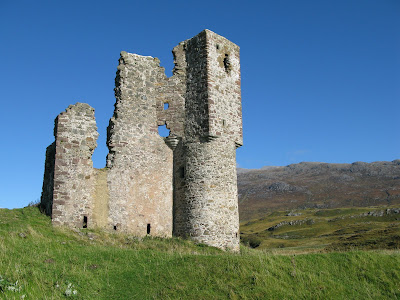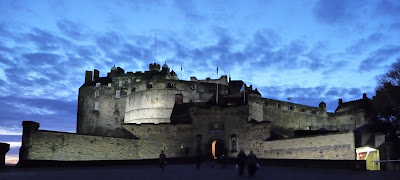Many readers will be aware of the recent serious floods in much of Queensland, which have claimed dozens of lives, devastated tens of thousands of homes and caused billions of dollars worth of damage to crops, buildings and infrastructure across an area the size of Germany and France combined. Victoria is currently experiencing its worst flooding on record, which is causing
more damage than the
2009 Black Saturday bushfires. Disastrous flooding has also struck
Brazil, the
Philippines,
South Africa and
Sri Lanka. In each case, scores or hundreds have been killed, tens or hundreds of thousands have been displaced and millions or billions of dollars worth of damage have been sustained. And of course, there are still millions of displaced Pakistanis after flood waters covered more than one fifth of the country
in July and are yet to fully recede.*
*The relative level of news coverage concerning these various events is itself a phenomenon worthy of a little reflection.
The suffering from these events lasts much longer than the headlines and the victims in each case can be supported through reputable charities and aid organisations (for example
here).
Yet amidst seeking to provide practical help to these situations, such ruinous events open a range of questions for Christians. How are we to understand such events? Are these floods acts of God? Punishments of some kind? Senseless and random natural disasters? After-effects of the fall? Premonitions of some impending apocalypse?
This discussion will focus on the flooding in Queensland, especially Brisbane, which is where I've read the most analysis, yet I suspect that similar stories could be told about most or all of the other locations.
The causation of floods is a complex matter. Obviously, rainfall patterns are important. Many locations in the affected area of Queensland received
record-breaking falls. Indeed, these floods come after the
wettest year on record globally and in Queensland, and the
third wettest on record for Australia as a whole. It was also
equal hottest globally, which is relevant because warmer air holds more moister, and warmer oceans evaporate faster. Indeed, surface water temperatures off the Queensland coast are also
the warmest on record. This is all directly related to
one of the strongest La Niña patterns on record, but it is also consistent with predicted shifts in the climate system.
Attributing extreme weather to climate change is complex, and it is simplistic to say
"see, here is climate change", but it is also fair to say that no weather is simply "natural" anymore (more discussion
here and
here and
here).
Yet rainfall alone doesn't determine water volume or speed. Land use changes play a big role in shaping how much run-off contributes to rising rivers - and how quickly. Deforestation generally makes floods worse by removing natural barriers that soak up some moisture and slow down the rest. Urbanisation takes this a step further by replacing absorbent soil with largely impermeable concrete. Although Australia is sparsely populated, the area around Brisbane is the main population centre in Queensland and has seen the most significant land use changes.
Previous erosion (itself linked to deforestation and land use management) has also changed the nature of the river bed through sedimentation. Thus, in significant respects, the Brisbane River is not the same river as in previous floods. This process is ongoing. A number of commentators noted that the images of the floods were striking not only for the destructive power of the torrents, but for the bright red hue of the flow - carrying off yet more valuable and scarce topsoil, Australia's future food.
Human activity has shaped watercourses in more direct and intentional ways too, of course. Dams, such as the massive Wivenhoe, built after the "Big Wet" of the 1974 floods, are intended to reduce the occurrence of minor floods, but as we have seen, can't be guaranteed to prevent the largest ones.
Not just the construction of dams, but their operation is also a factor. The extent to which Wivenhoe could have been managed better to minimise flooding is
still disputed and is the subject of commission of inquiry called by Premier Bligh.
Perhaps an even more significant human factor concerns town planning and the location of buildings relative to floodplains. If I build a sandcastle below the high-tide mark, do I experience a natural disaster twice a day when the tide comes in? If I build a house in the bed of an seasonal stream, do I suffer from an act of God each year when my house is inundated? And what if I situate my business on a flood plain? It it worth noting that Brisbane Council has been trying to buy back the most vulnerable land for the last five years but prior to the floods had met with little enthusiasm from owners. I'm sure many are now kicking themselves for this now. To add insult to injury, the resale value of the flooded properties is likely to take a hit, and some may become basically
uninsurable, as some Britons have found after the floods of recent years here.
Given the wide variety of ways that human decisions and behaviours have influenced the conditions of possibility for these floods, it seems strange to consider them merely natural disasters. Indeed, there is a sense in which no disasters are purely natural. This is especially true of weather-related disasters in a world where human hands are on the global thermostat.
But can they be considered acts of God? Human agency doesn't necessarily compete with divine agency. That is, human actions are affirmed at times in holy scripture also to be acts of God. So the fact that human decisions contributed to a given disaster doesn't mean God was absent. Yet at the same time, I don't think that divine sovereignty - the good news that God is king - requires or enables us to ascribe all events to the hand and plan of God either. God is not
"the secret architect of evil".
Nonetheless, God often (though not always) lets us experience the consequences of our actions. There is
no divine promise of universal protection from all harm.
Floods (and most other "natural" disasters) are complex phenomena involving the interactions of a wide variety of human factors with patterns in other aspects of the created order. As with much of the messiness of history, their theological significance is not able to be simply read off from the events. Simplistic attempts to ascribe blame upon God, nature or particular humans represents a short-circuiting of the invitation to deeper observation, reflection and planning that such phenomena represent.
This is particularly true in our current age of growing understanding of the hydrological cycle. Oversimplified accounts that simply shrug the shoulders and notches such disasters up as "one of those things" distract people from the fact that threats like this are not random or unpredictable. Flooding in Queensland is far from unprecedented. Warnings of more intense precipitation events have long been predicted by climatologists. The Australia Bureau of Meteorology had warned some months ago of this La Niña being particularly strong. Brisbane Council had been warning low-lying residents of flood danger for years.
The evaluation of future threats is neither tea-leaf reading nor an exact science. But wisdom does not fear or dismiss our best attempts to understand causes and fashion responses to such dangers that are commensurate with the scale and likelihood of the threat. Theological reflections offer us no reason to leave our head in the sand, though plenty of reasons to not build our houses upon it.
PS Amidst all the human suffering and loss, spare a thought too for the damage that the floods are likely to cause to the already stressed and threatened Great Barrier Reef.
























